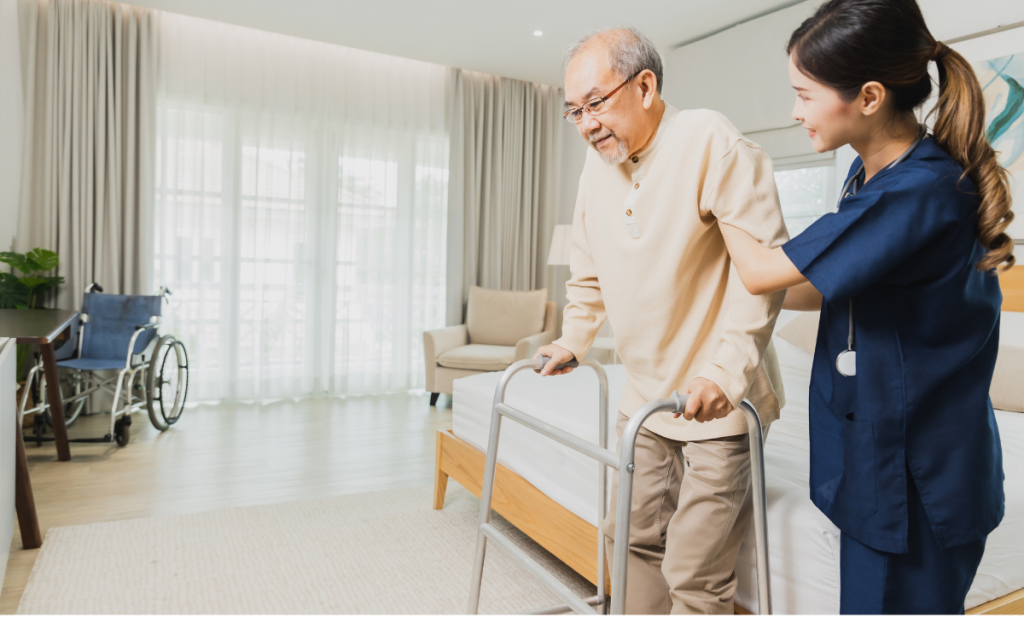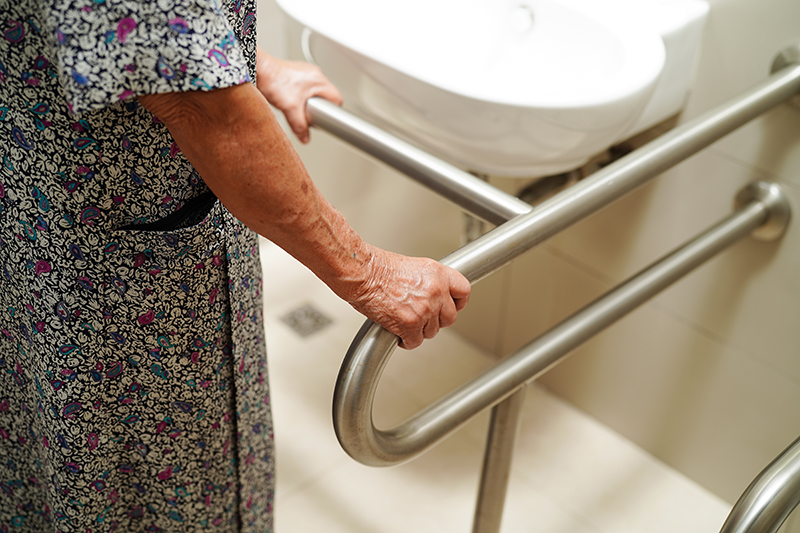6 Essential After Hospital Support Tips for a Smooth Recovery

A hospital stay can take a toll on your physical and mental well-being, and recovering afterwards is a vulnerable time that needs to be well planned with the right support in place to move back to normal life. Whether you’re on the mend from surgery, an illness or other medical procedure, after hospital support is crucial to regaining your health and independence.
In this comprehensive guide we will share six essential after hospital support tips to ensure that you or your loved one recoups, effectively and confidently. Let us learn ways to make this journey effective with the right approach.
1. Create a Post-Hospital Care Plan:
A clear care plan makes the core of successful recovery. This plan needs to include medical, emotional, and practical needs throughout the period of recovery. Work closely with your healthcare providers to create a personalized guide for care.
What to Include in Your Plan
Schedules and dosages of medications.
Also, follow-up appointments and therapy sessions.
Dietary restrictions or nutritional needs.
Guidance and restrictions with physical activity.
Why It Matters:
A well-defined care plan ensures that all significant components of recovery are accounted for, minimizing the risk of complications or setbacks.
2. Ensure that the home environment is safe and comfortable:
It’s important to adapt the home to aid recovery. It helps reduce accidents and encourages independence by providing a safe and accessible environment.
Key Home Modifications
Add grab bars in the bathroom and around stairs.
Clear away any loose rugs or other items that might lead to falls.
Rearrange furniture to create open pathways for moving around.
Put things you need within your arm’s reach.
Why It Matters:
A home that supports recovery helps build confidence as well as lessen anxiety, so the transition is easier.

3. Emphasize the Proper Management of Medications:
Medication adherence is essential for post-hospital recovery. Mismanaging medications may result in prolonging healing time or incurring health issues.
How to Manage Medications Effectively
Use a day- and time-labeled pill organizer.
Use your phone for reminders or medication management apps.
Have your healthcare provider regularly review medications.
Why It Matters:
Meds given on time and the right dosage help with speedy recovery.
“Learn about top 6 of the Best Medication Reminders by Healthline.”
4. Prioritize Physical Therapy and Mobility:
Building strength and recovering mobility are key components of rehabilitation. Physical therapy, both light exercises and daily movement and activity, play an important role in a patient’s overall wellness.
Tips for Improving Mobility
Arrange for sessions of physical therapy to restore strength and flexibility.
These should include light exercises such as walking or stretching.
Use mobility assistants, walkers or canes as needed.
Why It Matters:
Exercise, the go-to remedy for most conditions, halts muscle wasting, gets the blood pumping and lifts mood.
5. Address Emotional and Mental Well-being:
Hospital stays and medical procedures can take a toll on mental health. Providing emotional support and addressing psychological needs are as important as physical care.
How to Support Mental Health
Promote open discussions about emotions and fears.
Have family and friends visit from time to time to limit isolation.
Try mindfulness techniques such as journaling or meditation.
If necessary, seek professional counseling.
Why It Matters:
An optimistic mindset hastens recovery and supports patients in remaining inspired throughout the healing journey.
6. Leverage Professional After Hospital Support Services:
After hospital support services provided by professional caregivers offer a customized care approach to meet the specific requirements of the recovering person. This could be help with everyday activities like cooking, medical care or just someone to keep you company.
Benefits of Professional Support
Care plans that are customized to medical needs.
Help with daily activities like bathing or getting dressed.
Professional care of the wound and management of medications.
Emotional encouragement to raise confidence throughout the recovery process.
Why It Matters:
It makes sure that recovery is conducted through professionalism and thus, it gives mental peace to both the patients and families.
FAQs About After Hospital Support
What is after hospital support?
After hospital support: medical, physical and emotional care provided to patients after discharge from a hospital. This support facilitates a seamless transition to recovery at home.What is the importance of a care plan after hospitalization?
A care plan serves as an organized approach to recovery, with medications, appointments, and lifestyle changes listed, to help prevent complications.How can I ensure medication adherence during recovery?
Use pill organizers, apps, alarms or other tools to help you keep medication schedules straight. Always speak to a health care provider for specifics.How does physical therapy play a role in recovery?
Physical therapy can improve mobility, strength, and balance and lower the chance of being physically limited long term.When should I consider professional after hospital support services?
Professional support is best when patients or caregivers require help to complete medical tasks or personal care or navigate complex recovery needs.
Conclusion
After hospital support — Recovering after a hospital stay can be a long and arduous road but one that is made easier with the right after hospital support. Developing a thorough care plan, maintaining a secure home environment, managing medications effectively, placing importance on physical therapy, attending to emotional needs, and utilizing professional support services to improve recovery outcomes can all be used to aid the recovery of the patient.
Whether you’re supporting a loved one or managing your own recovery, these tips will help keep you equipped to transition with confidence and care. Recovery isn’t only about the health of your body—it’s about getting back your independence, the confidence of a body that does what you want, may your life be the way you want it.
Get started on your after hospital care here; sisters nursing services. Feel free to contact us for more information about how we can help you.



